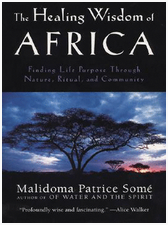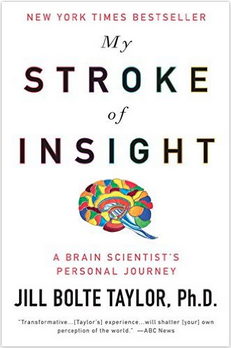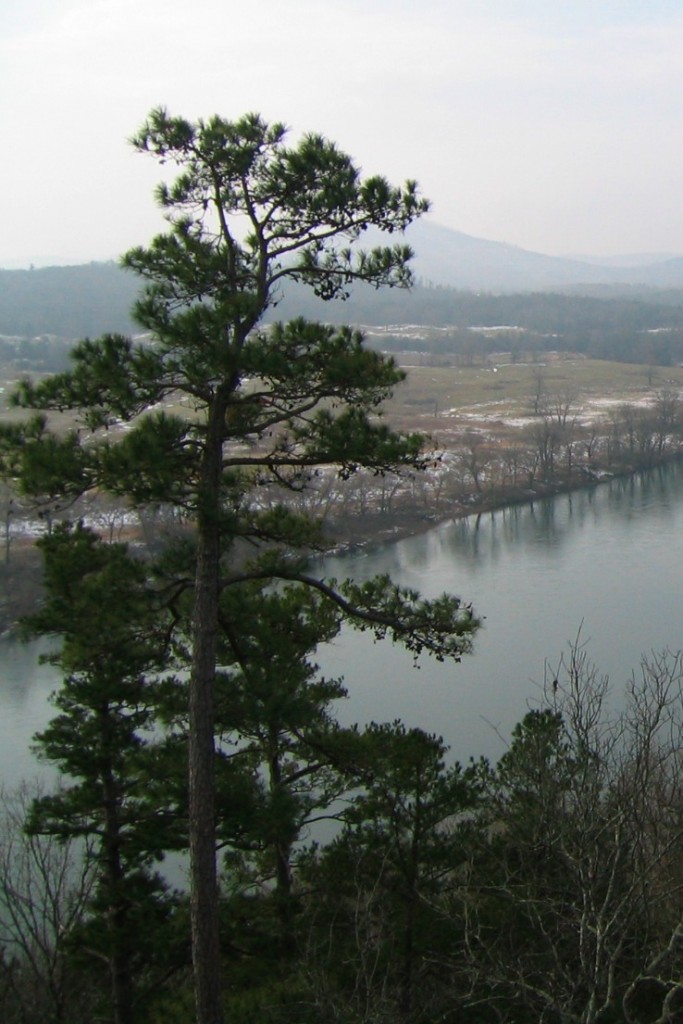This week is spring break at the college where I teach, and I’m enjoying a respite from the endless flow of words. (Ironic that I sit down to write a blog post.) For a person who deals in words, I sometimes get weary of them. Words in emails, words in phone calls, words in books and media. How completely we humans rely on words! And how they leave us wanting in the deepest, most intense moments of our lives—when we are in love or in grief, when words say too much or too little but rarely approach the truth of the experience.
 Which is why I’m remembering some wisdom from the Dagara people of Burkina Faso in west Africa, as related by Malidoma Somé in The Healing Wisdom of Africa. (Full disclosure: I was paid to edit and develop this book a dozen years ago.)
Which is why I’m remembering some wisdom from the Dagara people of Burkina Faso in west Africa, as related by Malidoma Somé in The Healing Wisdom of Africa. (Full disclosure: I was paid to edit and develop this book a dozen years ago.)
Language, say the Dagara, is but a distant echo of the meaning to be found at the center of all-that-is. Writes Somé,
Words are but a remote reflection of meaning, like the shadows on the wall of Plato’s cave. . . . “To utter” [for the Dagara] means to be in exile.
The very act of putting a sentence together shows just how far we dwell from the source.
Language implies nostalgia for our true home, which is nature.
The idea captivated me—that nature is our true home. That we’re all longing to return home. And that words won’t get us there.
Meditators know the paradox. Becoming fully present in the moment means being able to interrupt the inner chatter, turn down the volume of the mental broadcast. Anyone who has sat quietly for even a few minutes knows how hard this is to do.
But the Dagara take the idea further. The amount of language a being uses, they say, shows how intelligent or foolish it is. In Dagara cosmology the beings closest to the center of meaning are plants and trees, for they do not depend on language to communicate. They are the wisest and most intelligent beings in nature. Farther away from the source are animals, who need some language to survive. And farthest away of all, the least intelligent species, are human beings, who rely almost entirely on words.
It’s the Western hierarchy of nature upside down. Instead of residing at the top of nature, close to the gods, we’re at the very bottom, far from home. In exile.
We could learn a thing or two from our wiser sisters and brothers—the trees, the animals, our own bodies. Which is why I recommend sitting with a tree, and why most of my meditations involve nature—from the body-focused awareness of shavasana to hiking among rocks and pine trees. Which is also why the Dagara recommend nature-based rituals—to help us remember our place in the scheme of things. To remind us to listen. To help us remember the center.
Because the more language, the more forgetting.
 It’s tempting to think this is a nice philosophy—for village folk, not for modern urban people. But I got a good dose of something similar recently through a Western scientist’s book, My Stroke of Insight. Jill Bolte Taylor is a neuroanatomist who in 1996 had a stroke that wiped out the verbal language centers in the left hemisphere of her brain. Her inspiring TED talk about the stroke and its aftermath has been viewed by millions.
It’s tempting to think this is a nice philosophy—for village folk, not for modern urban people. But I got a good dose of something similar recently through a Western scientist’s book, My Stroke of Insight. Jill Bolte Taylor is a neuroanatomist who in 1996 had a stroke that wiped out the verbal language centers in the left hemisphere of her brain. Her inspiring TED talk about the stroke and its aftermath has been viewed by millions.
Taylor says that within minutes of her stroke, she was plunged into wordlessness.
You might think it was a bleak existence, but the truth is rather different. Certainly she wanted to speak again, and she worked hard for years to regain her language skills. But she didn’t want language at the expense of what she experienced during those first minutes and hours after the stroke when she was without it.
When I lost my left hemisphere and its language centers, I also lost the [linear thinking] clock. . . . Instead of having my moments prematurely stunted, they became open-ended, and I felt no rush to do anything. Like walking along the beach, or just hanging out in the beauty of nature, I shifted from the doing-consciousness of my left brain to the being-consciousness of my right brain. I morphed from feeling small and isolated to feeling enormous and expansive.
Without her linear-thinking left brain, she also lost the ability to see herself as a bounded body separate from her environment.
My left hemisphere had been trained to perceive myself as a solid, separate from others. Now, released from that restrictive circuitry, my right hemisphere relished its attachment to the eternal flow. I was no longer isolated and alone. My soul was as big as the universe and frolicked with glee in a boundless sea. . . . I loved the deep inner peace that flooded the core of my very being.
Her stroke provided a quick trip to nirvana, and she hung out in a bliss that meditators work for years just to glimpse.
 The more language, the more forgetting—of that boundless sea. Of the peace in the present moment. Of the perfection each of us is, just by being.
The more language, the more forgetting—of that boundless sea. Of the peace in the present moment. Of the perfection each of us is, just by being.
We love our dogs and cats for their ability to bring us back to the present, to remind us to laugh and roll in the grass or stretch out in a sunny spot on the floor. Animals communicate using so much less language than we do—which brain research (as well as the Dagara) might suggest is the source of their joy.
Is it possible that the trees and plants also dwell in that boundless sea that Jill Bolte Taylor found when her left brain went offline? Perhaps, not needing language to communicate, they too are big as the universe.
Walt Whitman wrote in Song of Myself,
The spotted hawk swoops by and accuses me, he complains of my gab.
For good reason. These humans talk too much. It can get in the way.
“Great post,” she wrote, using words.
Now to go outdoors, leaving words behind…..
K.
Katharine, you’ve got that one right! A relief to leave words behind, a joy to communicate with them.
Lovely, lovely, Priscilla. There’s room for both, of course, but language is often inadequate no matter how hard we try. Those wonderful, still moments when we somehow connect with our being PART of the universe and not in charge of it, our jewels among the messier strands of our lives.
Rosemary, I love that line, “part of the universe and not in charge of it.” Those moments are indeed treasures!
The Silence
Though the air is full of singing
my head is loud
with the labor of words.
Though the season is rich
with fruit, my tongue
hungers for the sweet of speech.
Though the beech is golden
I cannot stand beside it
mute, but must say
“It is golden,” while the leaves
stir and fall with a sound
that is not a name.
It is in the silence
that my hope is, and my aim.
A song whose lines
I cannot make or sing
sounds men’s silence
like a root. Let me say
and not mourn: the world
lives in the death of speech
and sings there
by Wendell Berry
Kathleen, the Wendell Berry poem is utterly perfect! And it’s one I was unfamiliar with. Not anymore! I’m going to memorize it. He’s another who loves both trees and words—and recognizes the limits of the words that he crafts with such beauty. What a treat to discover this poem just minutes into my birthday, a few moments after midnight. Thank you for a sweet b-day gift!
Aaaahhhhhh.
Gail, sighs are good, aren’t they?
What a fascinating post, as always. I’ve often thought about trying to go through an entire day without saying a word, but I’ve never committed to it. There’s always someone that has to be talked to. I do wish that people (myself included!) would take more time to slow down and just listen to what’s going on around them, pay attention to the trees swaying in the wind, the birds singing. I’ve recently been contemplating not just the words that humans speak, but the noise we make in general. Even when we’re not talking, we make a lot of racket!! It’s almost impossible to get away from it, even though we may try. Thank you for this post – it encourages me to think deeper on the subject.
Heather, we haven’t even begun to address our noise pollution, have we? I know there are studies done on how human-generated noise interferes with animal life. Maybe I’ll look into it further for another post. Anyway, thanks for stopping by and reminding us to slow down and listen.
I liked the Dagara worldview.
Sigh. Thank you for that sweet, gentle reminder.
I often laugh that I want to be a writer, when it goes against so much of what I believe to be true. But, alas, I have no talent as an artist or musician. Though, I do keep trying.
This piece gives me the strength to reconsider a solo bike tour. I was fearing the aloneness and silence.
Namaste.
Sometimes silence is fearful, other times rich and full. I find it often has to do with whether being alone is a good choice at the moment. For me, sometimes it is, sometimes not.